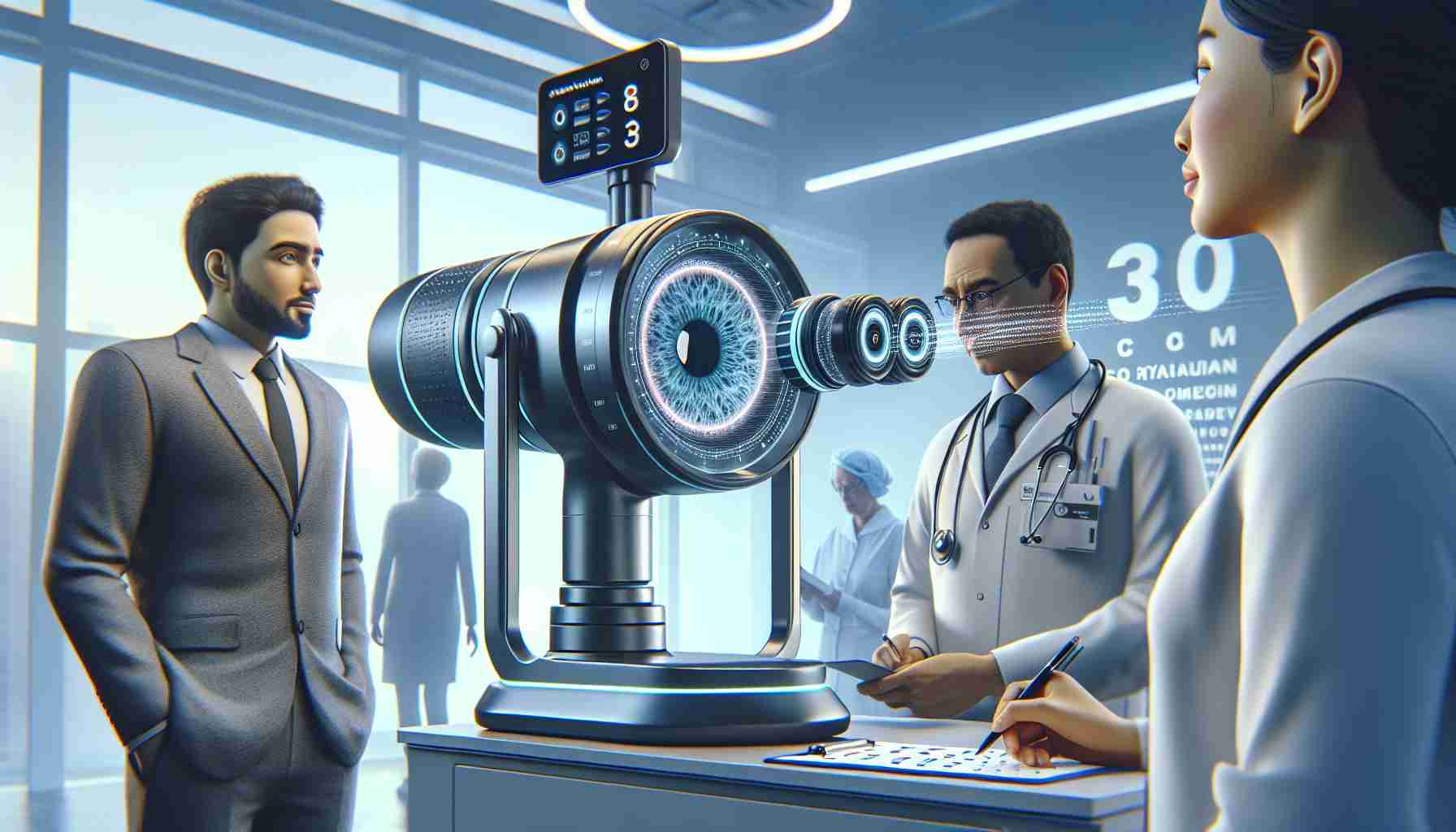Groundbreaking Application of AI in Eye Care by Cambridge Scientists
Researchers at the University of Cambridge have explored a novel application of artificial intelligence, employing ChatGPT 4 to triage ophthalmology patients. Their findings, shared by BBC, show that this AI model is a step forward in differentiating urgent cases that require immediate specialist attention from less critical ones.
During trials, ChatGPT 4 answered a set of ophthalmology questions, achieving a 69% score on a test that consisted of 87 questions. The AI was trained using around 374 ophthalmology-related questions. Its performance was measured against the assessments of expert ophthalmologists and doctors with varying levels of expertise in the field. ChatGPT 4 demonstrated improvements over previous AI versions and other language models.
Ophthalmologists Outperformed by AI Model in Patient Triage Efficiency
Ophthalmologists involved in the study scored an average of 76%, while trainee eye doctors scored 59%, and junior general physicians scored 43%. Dr. Tirunavukarasu, who led the study, explained that AI has the potential to revolutionize patient sorting. It can decipher which cases demand emergency attention, differentiate those that general practitioners can handle, and identify patients that may not need any immediate treatment.
This enthusiasm is echoed in the scientific community as confidence grows in AI’s ability to consult general practice doctors. Facing difficulties in securing quick advice from specialized consultants, general practitioners could benefit from AI models that can provide rapid and reliable guidance. Such technological advancements could be the key to efficient patient management and prioritization in healthcare settings.
AI Integration into Healthcare Raises Important Queries
What are the key questions posed by the integration of AI in healthcare settings, particularly in ophthalmology?
1. Accuracy and Reliability: How does the accuracy of AI in diagnosing and triaging patients compare to trained medical professionals?
2. Adaptability and Learning: Can AI keep pace with the latest medical research, guidelines, and practices within ophthalmology?
3. Data Privacy and Security: How will patient data be protected when using AI tools, and what measures are in place to assure confidentiality?
4. Legislation and Governance: What legal frameworks govern the use of AI in clinical decision-making, and how are errors or misdiagnoses addressed?
Key Challenges and Controversies in AI Adoption in Ophthalmology
Challenges:
– Ensuring that AI tools have undergone rigorous validation and testing.
– Integrating AI into existing clinical workflows without disrupting patient care.
– Overcoming resistance from healthcare professionals concerned with the implications of AI on their roles.
Controversies:
– Ethical considerations regarding the decision-making power of an AI versus a trained doctor.
– Potential for AI to perpetuate biases present in the training data.
– Concerns over job displacement for certain healthcare roles.
Pros and Cons of Cambridge’s AI-Based Tool
Advantages:
– Efficient triage, potentially reducing wait times and improving access to specialist care.
– Support for general practitioners in making accurate referrals.
– A continuous learning system that may evolve with accumulating data and experience.
Disadvantages:
– Risk of misdiagnosis or overlooking subtle signs that a trained human eye might catch.
– Dependence on the quality and diversity of data for AI training, which can affect its decision-making capabilities.
– Potential mismatch between the AI’s recommendations and personalized patient care nuances.
For more information on the development and deployment of AI in healthcare, you might explore the following organizations:
– University of Cambridge: For their latest research on AI and its applications.
– BBC: For coverage on new technologies and their impact on society, including AI’s role in healthcare.
– World Health Organization (WHO): For guidelines on digital health technologies and their governance.
– American Academy of Ophthalmology (AAO): For insights into advancements in ophthalmologic care and standards.
The source of the article is from the blog enp.gr

